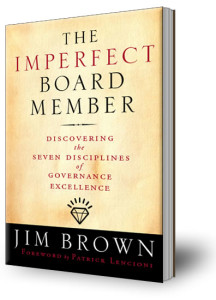 In the early 1800s, weavers feared the end of their profession.
In the early 1800s, weavers feared the end of their profession.
Automated looms produced more fabric, faster, and at a much lower cost. Weavers were going out of business.
Ned Ludd tried to fix the problem by smashing the new technology. He sparked an uprising that required a military response. Mr. Ludd became immortalized in the term: luddite.
Traditional luddites did not hate progress. They resisted progress to protect personal incomes. Luddites wanted a strong labour position. Smashing machines forced factories to hire workers, instead of replacing them with technology.
Luddite Leadership
We all risk luddite thinking. It can infect any group: political parties, unions, and social clubs.
Luddites smash good ideas, censor discussion, and fear debate. Most of us have acted like luddites at some point.
- I am the Prime Minister. You shall speak as I say on this issue.
- We must not mention in-house debates! It makes us look divided.
- Do not mention the cost of THOSE groups. We sound unsupportive.
Luddite thinking is a form of (toxic) group-think. It empowers ‘leaders’ beyond ability. Luddite leaders confuse passion for their cause with true leadership. They attack colleagues using moralistic fear mongering.
Luddites operate with a sense of authority; dizzy with zeal to protect group-think. They substitute passion for thoughtfulness and use an old labour trick: toe the line or have your kneecaps whacked.
Modern luddites lust for stronger positions: political groups manoeuvre for better public opinion; unions stick handle for advantage with government. Luddites use thuggery to protect trade secrets, when they could help their cause more, by sharing great ideas.
How to Fix Luddite Leadership
Luddites have no compunction; they can always escalate threats, intimidate more. Like mosquitoes swarming a bulb at night, luddites cluster around contrived power.
An individual union, fighting for a raise with the only car factory in town, faces a constrained power struggle. If there were other unions and multiple car factories, luddites would lose control. They’d be forced into open debate by competing groups. They could not micromanage the conversation.
Meaningful debates, about real issues, require diverse opinions. But real issues can be costly. They cause change. Change brings new positions, new power struggles. Given the choice, most groups would rather crush debate than lose the power they paid so much to win.
Luddite Control
Every space that supports one, dominate voice risks luddite leadership. Concentration of power invites luddite control.
True leadership allows debate. Real leaders take risks by sharing facts. They give power away, instead of hoarding it with jealous love. True leaders do not want sheep; they want team members with ideas of their own.
And for those of you who worry about whether you might be a luddite, do not worry. Luddites do not reflect on their own leadership. They assume they are right, and that everyone else should get in line.
It takes great courage to oppose the Ned Ludds around us. It takes character to not become one ourselves.
We can let luddites bully and scare us into submission, or work to change to rules that gave them power in the first place. Will we take the risk?
photo credit: express.co.uk


